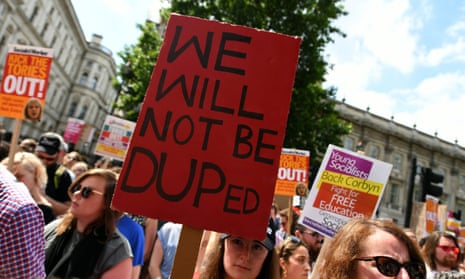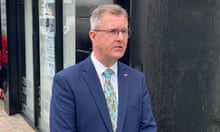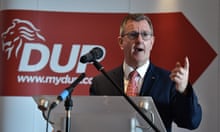Theresa May’s confidence and supply agreement between the Tories and the Democratic Unionist party (DUP) may leave the development and humanitarian sectors in the UK in a bit of a quandary - once again raising the spectre of aid and hypocrisy. How can they promote human rights abroad, while partnering with a political force that is ideologically opposed to women’s and LGBTI rights at home?
The Department for International Development (DfID) has a solid record on women’s rights and gender-related work – addressing violence against women and girls, and women’s economic injustice, as well as working to ensure that gender-sensitive programming is delivered in humanitarian responses. It is the largest donor to the UN population fund (UNFPA) and kickstarted some very effective women’s rights initiatives for development and humanitarian contexts, including the Call to Action on Protection from Gender-Based Violence. It has championed work on child marriage and female genital mutilation, and launched large initiatives to promote girls’ education. Whether you like its economic motivations or not, DfID’s work has helped place women’s and girls’ rights firmly on to the global policy agenda. The partnership between the Conservatives and the DUP jeopardises this.
The DUP is staunchly anti-choice. DfID has tied its hands behind its back already with regard to not speaking out about the US’s global gag rule – showing that the UK government is comfortable to put trade deals before the lives of women and girls. With the DUP questioning how much of the new overseas aid package that Priti Patel, the international development secretary, announced for family planning, will be spent on the provision of abortion – and the response decidedly non-committal – I’m concerned that when parliament reopens in September, we may see the Conservatives putting home power first over the same lives they turned away from as Donald Trump cut women’s and girls’ lifelines.
And it’s not just women’s and girls’ rights in danger. The DUP’s stance on LGBTI rights is regressive to say the least. Huge gains have been made in recent years, with the Obama administration’s commitment to stop funding governments and organisations that discriminated against persons based on their sexual orientation and gender identity, and with DfID among other global donors ensuring LGBTI rights are on their agenda. What message are the Conservatives sending out to the world by partnering with the DUP? What will happen to the LGBTI movements that have grown in strength, visibility and numbers in recent years? Will the UK be sending the signal to oppressive governments that it is OK for those movements to be quashed, that we don’t care about LGBTI rights any more?
The last two areas of concern relate to Northern Ireland and to the women, peace and security (WPS) agenda. This is a key women’s rights policy framework from the UN security council that calls for greater participation of women in conflict resolution and peace-building efforts, while simultaneously urging greater protection of women and girls, with a particular emphasis on their experiences as survivors of conflict-related sexual violence.
The UK is a champion of the WPS agenda and is in the process of designing its new national action plan with regard to this. While, controversially, the UK has not included Northern Ireland in the agenda and strategies have all looked outward to conflict-affected states in the global south, the question remains: what message are we sending to the world when our government officially partners with one side of a conflict? If the DUP were a party in any other country that adhered to any other religion, would we consider them to be religious fundamentalists? With their connections to terrorists, would DfID even be allowed to fund projects that worked with them?
Entering into a partnership with the DUP sends a clear message: women’s rights, and human rights in general, are only important when politically expedient. How can DfID call for governments to champion rights when it partners with a party that has kept women in Northern Ireland from their right to choice and kept LGBTI couples from their right to marry? How can it work against radicalisation when it partners with religious fundamentalists? This partnership of hypocrisy is potentially damaging on so many levels for the UK, but spare a moment to consider the damage it could also do globally.









